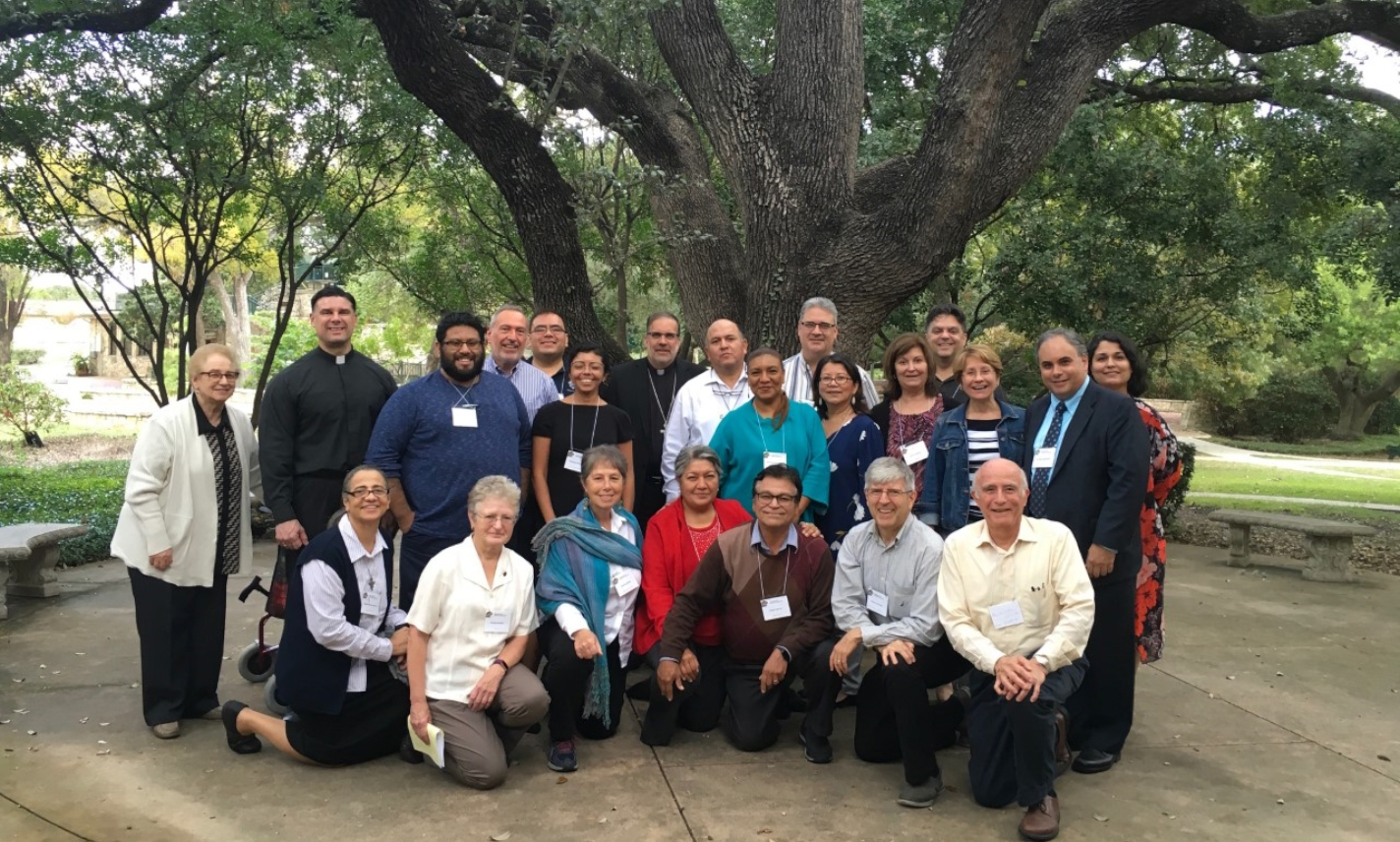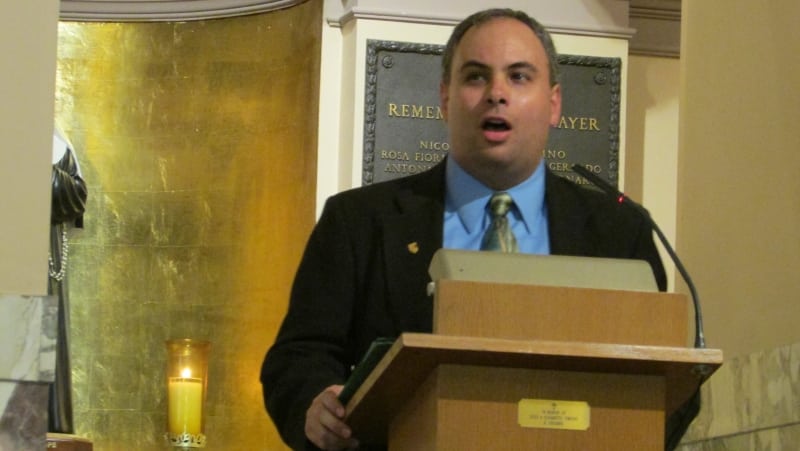One of the opportunities I have as Assistant Director of Certification for Ecclesial Ministry and Service at the United States Conference of Catholic Bishops (USCCB), is to record video reflections on the readings of the Scriptures proclaimed at daily Mass. I do so as part of larger group of colleagues at the Conference, along with lay and ordained leaders from around the country. I am grateful for the opportunity to reflect on the meaning of the readings for the life of faith today and to share them here, along with the written text of the reflections. To view these video reflections for past and upcoming celebrations of the Eucharist, visit the USCCB website.
Reflections on the Word | Saturday, 3rd Week of Advent | December 22, 2018
I always find great beauty in Advent and Christmas music that is steeped in our history – old favorites like “Silent Night,” “Hark! The Herald Angels Sing,” or even less-known songs like the Basque hymn “The Angel Gabriel from Heaven Came.” These songs have powerful words that boldly proclaim our faith in the God who has become flesh.
But I have noticed over the years, that the power of their words can become lost to us especially when they are repeated out of context over and over. Corporations have stolen these hymns from us, turning them into jingles we listen to while we’re shopping the discount rack at the department store. Maybe its just good business (to them at least!). Or maybe they want us to forget the radical message they contain. Or maybe both! Over time even we grow tired of hearing them because they’ve been stripped of their faith meaning!
All the better that today’s readings are – appropriately, three days before Christmas – full of singing about the “wonders of God’s love” from two strong women of the Bible, whose songs of praise echo through the centuries and can’t be sentimentalized or commodified. The songs of Hannah, and of Mary, the Mother of Jesus, remind us of the God to whom we belong and what God desires for our world, and how God acts in history to accomplish his plans of mercy and justice.
Although we don’t hear the whole story in the first reading, Hannah is returning to dedicate her son to God’s service in the temple, because God, one year earlier, had heard her prayer for a son. She prayed for this child and in gratitude to God, comes to do something very hard for any parent – to let that child go into the care of another. She brings him to Eli, the priest who, one year ago, had seen her praying fervently in the temple and dismissed her thinking she was drunk or crazy. Her return one year later having been heard by God is a vindication of her faith – something she is not shy about reminding Eli about!
She seems to have taught Eli a thing or two as he does take care of the boy and becomes responsible for raising him. And Samuel went on to become one of Israel’s first and greatest prophets!
Normally, the psalms for the response come from the Book of Psalms, but not today. Today we hear Hannah’s own spiritual journey in the words of the psalm – HER psalm – and also a wider vision of a God of surprise reversals – who breaks down those who seem to be mighty and raises up the poor. This is a victory song, as Hannah recognizes that God is the Lord of history God is always attentive to those whom society has a tendency to forget and God never forgets a promise.
In the Gospel from Luke, we hear a very similar hymn on the lips of Mary. As a faithful Jewish woman, it is likely Mary knew of the story of Hannah and her psalm of vindication. She sings of her own improbable pregnancy and motherhood. It is a response of praise to the encounter with the angel Gabriel who announced she would bear the Son of God:
My soul – my whole life – exalts in the Lord! God who is mighty has done for me a mighty deed!
And she – like Hannah – knows that God is doing something new in history:
God shows mercy in every age, scatters the proud, sends the rich away, lifts up the lowly and fills the hungry. God remembers his promise of mercy!
Mary’s joyful outburst promises that the proud leaders will be brought low and God’s kingdom will be populated by the lowly, the poor and the outcast. As we know, Jesus’ preaching and life exemplified these very actions. Mary’s song is a cry of vindication that evil is not the last word and God is still at work and acting on behalf of those whom society has broken down.
We live in a world where it can often seem that evil has corrupted everything – even our Christmas songs are used to sell things! But, three days before Christmas, we are reminded that -in the depths of our hearts, in the broken places of our lives, in the hurting parts of our communities and our world, God is coming, ready to be born anew in all of us and to come to the help of those who least expect it.
So let us sing our hymns with the confident faith with which Hannah and Mary sang their psalms. Because “the One who is mighty is doing a mighty thing, and Holy is God’s name!”
God give you peace!


 Request Dr. DelMonico's professional services for a liturgical, ministerial or leadership consultation, or for an academic or public presentation.
Request Dr. DelMonico's professional services for a liturgical, ministerial or leadership consultation, or for an academic or public presentation.